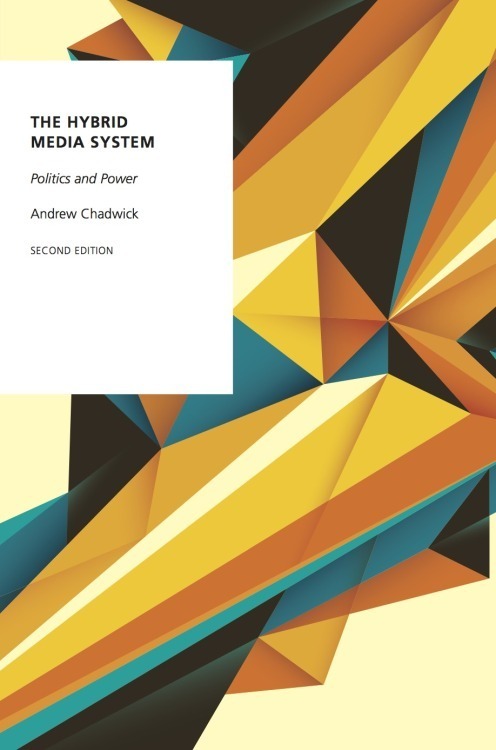Guest Post: Johanna Dunaway and Kathleen Searles on their new book News and Democratic Citizens in the Mobile Era
/Photo: @S_Soroka
Smartphones are ubiquitous today. People increasingly rely on their mobile devices for many tasks, including news consumption. Most North Americans and Europeans cannot imagine life without a mobile phone; a majority report rarely being without one. Globally, smartphones are now the primary source of access to the internet for many. In this way, mobile devices are expanding access to news and political information.
And yet, growing evidence from several fields highlights the limitations of mobile formats for information seeking and processing.
In our new book News and Democratic Citizens in the Mobile Era we draw on this evidence and a tradition of research on low-information rationality, which shows that information-seeking costs curb participatory behaviors unless the benefits outweigh those costs. We extend this insight to advance a broader argument about information and communication technologies (ICTs) and democracy.
The rapid growth in the use of mobile devices requires a more coherent account of when and how patterns of attention shape the impact of information. The vast interdisciplinary research literature on technology and media effects makes clear that mere exposure to information is necessary but insufficient for learning.
We argue that, even as ICTs are expanding access to information, they also structure information delivery and presentation in ways that affect what people pay attention to and learn. And these effects have consequences for an informed electorate.
Our framework integrates physical and cognitive access (PCA). It emphasizes the crucial difference between the opportunities mobile devices offer for physical access to information, and the ways those same devices structure cognitive access to information. The PCA framework helps us better understand these differences.
Then, to explain the effect of mobile devices once exposure occurs, we develop and test the post-exposure processing model (PEP), which depicts how ICT features might affect information processing after a person is exposed to content.
We find that mobile affordances for physical access to information can mitigate, but not eradicate, the costs associated with information seeking and processing—costs that are exacerbated by mobile device features. Mobile devices limit cognitive access to information because they make attention allocation, and thus learning, more difficult for people. The PEP model provides a path to better understand how changes in communication technology are affecting people’s ability to learn about politics from the news.
To test the model, we advance a unique methodological approach, drawing on laboratory and real-world studies. In our lab-based studies, we use physiological measures of attention and engagement. This helps us overcome some of limitations of relying on people’s self-reports of their behavior. We integrate the lab methods with more traditional measures of news consumption.
Ultimately, our book shows that mobile access expands the opportunity for exposure to news. But exposure does not equate to attention. And attention, engagement, and recall are all hindered on mobile devices. We also uncover the key mechanism underlying these effects—cognitive effort.
Together, the framework and model paint a realistic portrait of news consumers in the mobile era. Mobile devices increase the time, economic, and cognitive costs associated with information-seeking.
This book offers a new approach to understanding media effects in the context of changing information and communication technology. Using an evidence-based approach, it helps make sense of the conflicting claims we often see in public commentary, particularly the debate about whether smartphones exacerbate or ameliorate digital divides.
While we focus on mobile devices in the book, the arguments we make are broadly applicable to communication technology. If you have ever found yourself wondering how the same message might differ depending on the device, platform, or mode of access—an increasingly common conundrum in the hybrid media environment—our book offers an answer.
By revealing the cognitive costs of accessing information on mobile devices, this book raises important questions about how technological change is reshaping citizenship in ways that may not be optimal for democratic governance.
Johanna Dunaway is Associate Professor of Political Science at Texas A&M University. Kathleen Searles is Associate Professor of Mass Communication and Political Science at Louisiana State University.
News and Democratic Citizens in the Mobile Era is published by Oxford University Press in the Oxford Studies in Digital Politics series.




